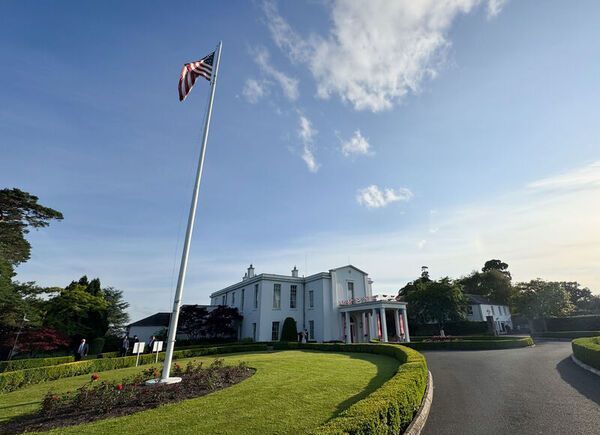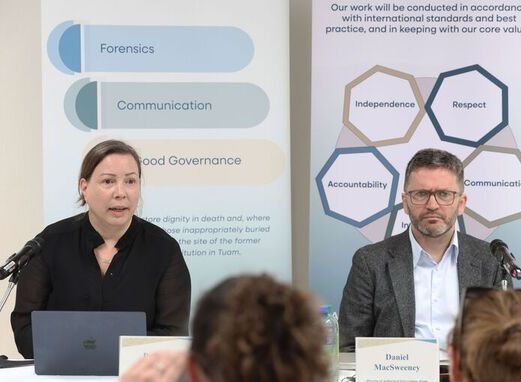Edward Conlon’s latest, “The Policewomen’s Bureau,” has been described by Joseph Wambaugh as “frightening, exciting, rewarding.”
Page Turner / Edited by Peter McDermott
“Go for it, kiddo.”
That was Marie Cirile-Spagnuolo’s verbal green light to her friend Edward Conlon’s plan to write her story in fictionalized form. She had already told it in her memoir, “Detective Marie Cirile,” and he asked for permission “to invent anything that might improve the story.”
Cirile-Spagnuolo trusted him. First of all, he had a track record — a unique one in NYPD terms — writing about cops in fiction and non-fiction formats (see “Published works” below). And, second, the “affinities were deep” between the Italian American appointed in 1957 and the Irish American who retired in 2011 (she was at his farewell party three months before her death).
Another ex-cop and novelist, Joseph Wambaugh, has said “The Policewomen’s Bureau” is “frightening, exciting, rewarding, as well as insulting, demoralizing, surreal, all at the same time. Policewoman Marie Carrara is the ultimate survivor.”
Linda Fairstein, author of the Alex Cooper series, commented, “Only Edward Conlon, whose cop stories are legendary, could tell this tale.”
Conlon said to the Echo about his friend, “She was a pioneering detective in the 1950s and 1960s who was married to a cop who abused her. The contrast between how she could handle just about everything on the streets of the city while she was helpless at home fascinated me.”
Describing his writing and his career as a police officer, he said. “I have very limited range. I wrote about cops and crime before I became a cop, and when I joined the NYPD, the New Yorker asked me to write about the job. I spent most of my career in the South Bronx.
“I retired in 2011 and returned last year as a director of communications for Commissioner O’Neill,” Conlon added, “who was the commanding officer of the 44th Precinct when I was a detective. I’ve been writing long-form non-fiction for the website, and we’re looking at new media projects.”

Edward Conlon
Date of birth: Jan. 15, 1965
Place of birth: Bronx
Residence: Bronx
Published works: “Blue Blood,” a family memoir of law enforcement, published in 2004 by Riverhead Books. A New York Times bestseller and finalist for the National Book Critics Circle Award, Time magazine called it “A great book. May be the best account ever written of life behind the badge,” and the Washington Post said it was a “dazzling epic of street life and rough camaraderie…vibrant and hilarious.” “Red on Red,” published in 2011 by Spiegel & Grau, was a finalist for the Edgar Award. The Wall Street Journal described it as, “Extraordinary…an accomplished work full of wisdom and adrenaline,” and Lee Childs said of it, “Possibly the best cop novel ever.”
What is your writing routine? Are there ideal conditions?
When I was a cop, I’d write before work, weekends and vacations. I think it was better to have a demanding job--I fought for time to write, and made the most of it. After I retired, I’d get a session in, mornings and evenings. I’m most productive when I disappear somewhere for a few weeks, without phone or internet, with good country for long walks.
What advice do you have for aspiring writers?
Read your work aloud to yourself. You’ll hear the flat or awkward lines, and you’ll catch verbal repetitions and mannerisms you never knew you had.
What book are you currently reading?
“SPQR,” a history of Rome by Mary Beard. There aren’t any cops in it. I need a break sometimes.
Is there a book you wish you had written?
“Arcadia,” by Tom Stoppard. Nothing about it should resonate with me—the story is about math problems and the setting is an English country house. But it does everything right: it’s very funny and deeply felt, elegant and poignant and profound.
Name a book that you were pleasantly surprised by.
“The Shattered Dream,” by Gene Smith. I don’t know why I picked up a biography of Herbert Hoover, whom I only knew as a kind of economic flat-earther who was overwhelmed by the Great Depression. But the book was a revelation — Hoover was one of the most gifted and principled public servants in American history.
What book changed your life?
“Anna Karenina.” I wrote a paper on it in college, breaking down the structure and seeing how multiple plot lines are shaped and arranged. It was the first time I really understood how novels are made. I wasn’t just a guest in the house; I could see how the architect did his job.
What is your favorite spot in Ireland?
For my mother’s 80th birthday last summer, 20-something of us stayed in Ross Castle, just outside of Galway City. It was just about perfect. As for smaller spots---in this case, 8x11 inches---there’s a sign on the door of the police station in Shrule, Co. Mayo, near where my grandmother came from. It says it’s open for an hour a week, on Wednesdays. I could have been a cop there forever.









